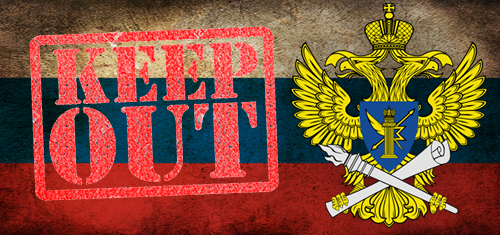 Russia’s state agency for policing the internet has made good on its threat to block Russian gamblers from accessing unauthorized online gambling sites.
Russia’s state agency for policing the internet has made good on its threat to block Russian gamblers from accessing unauthorized online gambling sites.
In February, the Roskomnadzor agency announced it would accede to government requests for stronger controls over access to unauthorized internet sites. On Thursday, BookMAkersrating.ru reported that Roskomnadzor had blocked a couple dozen online gambling sites belonging to both Russian and international operators.
The blocking began in late September, although most of the domains were blocked over the past couple days. Many of the newly blocked sites belong to familiar international names like 888 Poker, Betway, Bwin.party, JackpotCity, Ladbrokes, Marathon Bet, Pinnacle Sports, Titan Poker and Unibet.
Russian bookmakers weren’t spared, with sites belonging to Favbet, Fonbet, Liga Stavok, TrioBet, Vulkan-Bet and 1xbet also making the grade. According to the official register of banned sites (including non-gaming sites), some online casino affiliate domains – including the Russian version of PokerListings – have also faced the axe. At least one of the affected bookies (Liga Stavok) has reportedly already set up alternate domains to ensure service to the Russian market isn’t interrupted.
The domains in question were all previously the subjects of Russian court decisions dating from as far back as 2013. Fonbet, which has a significant retail presence in Russia but whose online operations are licensed in Curacao, was charged in February 2014.
In March 2014, Russia published its first blacklist of unauthorized online gambling domains, which included many more familiar western names, including PokerStars, William Hill and Sportingbet. It remains to be seen how many of these sites will find themselves facing Roskomnadzor’s ban-hammer and/or sickle in the coming weeks.
Russia has been making tentative steps toward liberalizing its online gambling market, having already taken steps to regulate online sports betting while publicly musing about regulating online poker. It’s unclear whether the recent IP-blocking represents a clearing of the decks in preparation for an official licensing regime or just official confirmation of things the Russian government doesn’t like. As with most Russian government actions, reading the tea leaves can be a frustrating experience.
